Thursday, March 11 marked one year since the World Health Organization officially deemed the coronavirus a global pandemic. Shutdowns in the United States caused sweeping shifts in how people consume nearly all goods and services. Savvy consumers shifted their purchases online, and local businesses suffered.
Also on Thursday, the $1.9 trillion American Rescue Plan Act was signed into law by President Joe Biden. It earmarked $50 billion in grants to small-business financing programs, acknowledging that small business revenue was down 32% and approximately 400,000 had shuttered.
In the Chicago area, some small businesses became casualties of the coronavirus, others barely managed to survive, but some flourished.
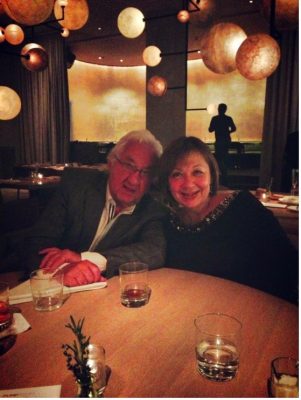
For 30 years, Kiki’s Bistro was a staple of Chicago’s dining scene, as was owner Georges “Kiki” Cuisance, who was inducted as an Industry Legend into the Chicago Culinary Museum and Chefs Hall of Fame in 2015. But the pandemic posed an impossible challenge to Kiki’s Bistro, formerly located on the Near North Side. He wasn’t able to remain open and take-out wasn’t possible either.
“French food does not travel very well,” Cuisance said. So at the age of 80, with an eye on retirement, the Frenchman closed his restaurant on September 30, 2020, and sold off the storied restaurant’s décor to recoup some of his losses.
“I am sorry we had to close,” Cuisance said. “I miss my customers. It was a place for family, and it was pleasant.”
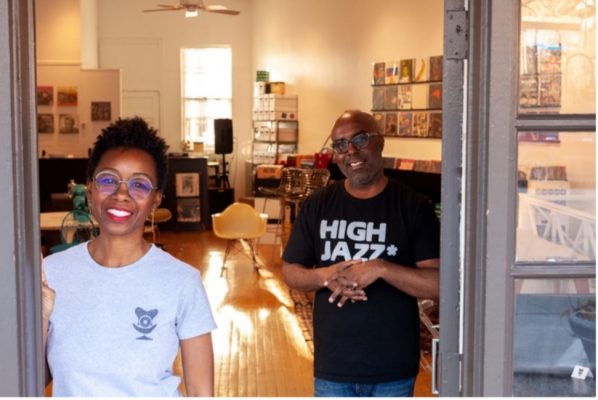
Conservatory Vintage and Vinyl, a Black-owned business in suburban Flossmoor, used the shutdown as an opportunity to innovate. The one-year-old business, which specializes in rare vinyl records, vintage home décor and statement piece furniture, implemented new cleaning and sales practices.
“We’ve put a lot more online,” said co-owner Chogie Fields, 45, including shopping over Zoom. “If I’m featuring a book…I’ll actually flip through the book while I play new music that’s a bit more unique or an artist that maybe people haven’t heard, so we’ve had to get creative.”
In-store shopping is limited to four customers at a time, but many choose not to come in at all. “We had a lot of customers move to curbside pickup,” Fields said.
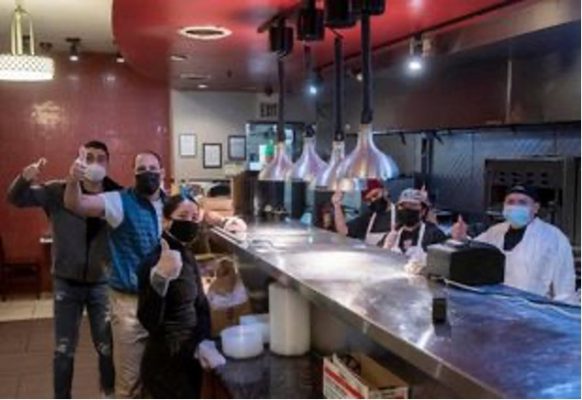
Amer Abdullah, 40, says the past year for his Hyde Park restaurant, Cedars Mediterranean Kitchen, was “adapt or die.” One year into the pandemic, Cedars’ front-of-house staff has completely turned over and its kitchen staff has gone from six people to three. Abdullah sees an upside to downsizing, though.
“My cashier can also jump in the kitchen [or] my kitchen person can run around and package food and give it to a customer,” he said. And while masks are now required in the kitchen, he thinks he’ll keep them after the pandemic is over. “I used to get a sore throat or a cold or something every two or three months,” he said.
This year, he and his employees have remained healthy, which he attributes to the use of protective equipment.
Kim Danzie, 44, had to close her massage therapy business, Infinite Touch of Chicago, from March to June 2020. For her, it was a time to reevaluate the finances of her nearly 10-year-old business located in the Chatham community.
“I had a rainy-day fund, but I never had a pandemic fund,” she said.
But she also realized how important her services would soon be to teachers, government workers and essential employees who were still working.
“People are going to need a massage because the world is stressful right now,” she said.
When she was able to reopen, Danzie began taking each client’s temperature when they entered, cleaning more thoroughly and requiring everyone to wear a mask.
“I want to do my part to make sure people feel comfortable,” she said. “And now I’m working towards having a pandemic fund.”

Akash Punjabi, 37, was able to keep his Wicker Park business, Doggy Style Pet Shop, open throughout the shutdown, but the pandemic was hard on this nine-year-old business. Because most of his customers no longer required dog walking services, Punjabi had to let four of his dog walkers go. In April 2020, his grooming shut down for a month and a half.
“With no dog walking, no grooming, it was very stressful, very challenging,” he said. “I felt like this could be it.”
But the customers who stayed proved loyal and supportive.
“They want to make sure that businesses just like mine will not shut down,” Punjabi said. They keep in touch and try to help in any way they can. “Those are days I actually love what I do.”
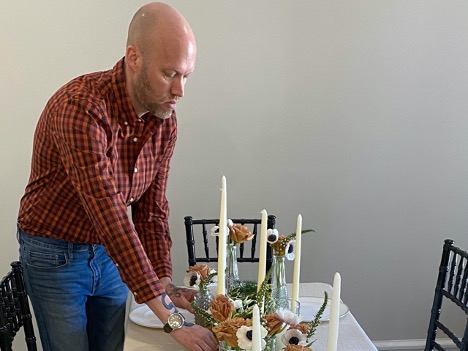
This might not seem like the best year to have opened a new business, but for Joshua Morgan, 41, it proved an ideal time. He opened The Green Flamingo Plant Shop in Chicago’s Lakeview neighborhood in October 2020 and found an eager customer base.
“Everyone, I think, during the pandemic and over quarantine, was really just trying to infuse happiness into their space,” Morgan said, which led to successful sales for his shop.
The Green Flamingo outperformed its original goals by 25%, and Morgan is already looking into expanding the store and what it offers. He’s also grateful, knowing that the fate of The Green Flamingo, and every local business, rests on the support of the communities they serve.
“I think people are just really hyper-focused and hypersensitive to making sure that the neighborhood stays relevant [and] that businesses are able to stay open,” he said.







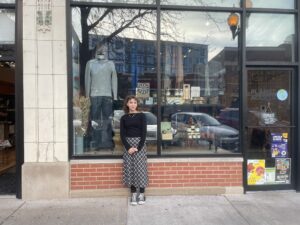




Be First to Comment